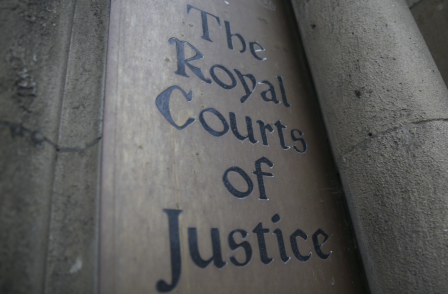
The "serious harm" test introduced in the Defamation Act 2013 is preventing frivolous libel actions from reaching the courts, according to the Libel Reform Campaign.
"Recent judgments concerning the 'serious harm' test show that trivial claims are being discouraged," the campaign said in a statement.
"Judges have affirmed the politicians' intent that claimants have to prove they had been harmed or prove that harm will result in the future."
The serious harm test, detailed in section 1 of the Defamation Act 2013, says a "statement is not defamatory unless its publication has caused or is likely to cause serious harm to the reputation of the claimant".
The campaign – a coalition of free speech organisations including English Pen, Sense About Science and Index on Censorship – said the test was not an insurmountable hurdle for genuine claimants, but added: "Lawyers tell us that it has resulted in fewer trivial claims being launched. We campaigned hard for this measure and we're delighted it is making a difference."
The group said the developments supported the extension of the libel reform campaign in Northern Ireland – the Province's devolved government refused to implement the 2013 Act, and still declines to introduce any reforms – and in Scotland, which has only accepted the part of the 2013 Act extending qualified privilege to peer-reviewed statements in scientific or academic journals, and to reports of proceedings at meetings of public companies.
In Northern Ireland the Stormont Executive is due soon to publish the consultation on defamation launched by the Province's now defunct Law Commission, which campaigners have suggested will include a draft Bill.
In November Scottish Pen published a letter co-signed by prominent Scottish writers that sais "a modern and open nation like Scotland deserves a defamation law that is fit for purpose in the 21st century."
The Glasgow-based Herald newspaper has also launched a campaign for defamation law reform, arguing that Scotland's failure to reform its law was having a "chilling effect on free speech".
It said as it launched its Freedom of Speech campaign at the start of December that libel claimants were now using Scotland as a "back door" to gag journalists.
The Scottish Government is currently reviewing the country's libel laws.
Hardeep Singh is a freelance journalist. He is on Twitter at: @singhtwo2. This piece originally appeared on PA Media Lawyer
Picture: Reuters
Email pged@pressgazette.co.uk to point out mistakes, provide story tips or send in a letter for publication on our "Letters Page" blog
